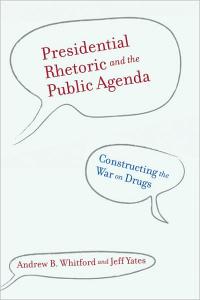I teach criminal procedure about once every other year or so and it can be quite challenging because this is one area of law that is especially dynamic in that the Supreme Court typically issues a good number of rulings every year that change the landscape of crim pro doctrine in important ways. Other law classes (such as criminal law, which I also teach) do not evolve nearly as much in the course of one or two years. In fact, the Court may issue highly relevant cases on criminal procedure during the time the course is being taught. This year I have decided to “bunch up” all the new cases (2007 and 2008) and devote a full day to them (“Update Day”) at the end of the semester rather than frantically trying to keep up with announced decisions and issuing doctrinal adjustment updates throughout the course of the semester (which tend to confuse students anyway).
On the Volokh Conspiracy Orin Kerr notes that a recent criminal procedure decision by the Court suggest that the justices may be following a “Update Strategy” that is sorta, kinda, similar to mine. In Danforth v. Minnesota, Justice Stevens writes:
[T]he source of a “new rule” is the Constitution itself, not any judicial power to create new rules of law. Accordingly, the underlying right necessarily pre-exists our articulation of the new rule. What we are actually determining when we assess the “retroactivity” of a new rule is not the temporal scope of a newly announced right, but whether a violation of the right that occurred prior to the announcement of the new rule will entitle a criminal defendant to the relief sought.
Orin comments: “If I’m reading the passage correctly, it indicates that new Supreme Court decisions that overrule old cases simply discover and recognize the real Constitution that the Court hadn’t been able to see in the past.” He adds:
So if I understand Justice Stevens correctly, a case like Miranda v. Arizona was constitutionally required at the time of the Framing, but the Court just didn’t see the true Constitution until the 5-4 decision by Earl Warren in 1966? Um, like, okay.
Extra Credit Question: If the Justices truly believe in the passage above, should they be adhering under stare decisis to any criminal procedure decisions that they think are incorrect?
Somehow I get the feeling that Harold Spaeth and Jeff Segal are smiling broadly while reading the Danforth opinion.


What I find most interesting about this passage is that it files in the face of claims, loudly made, that judges don’t and have never really thought this way…